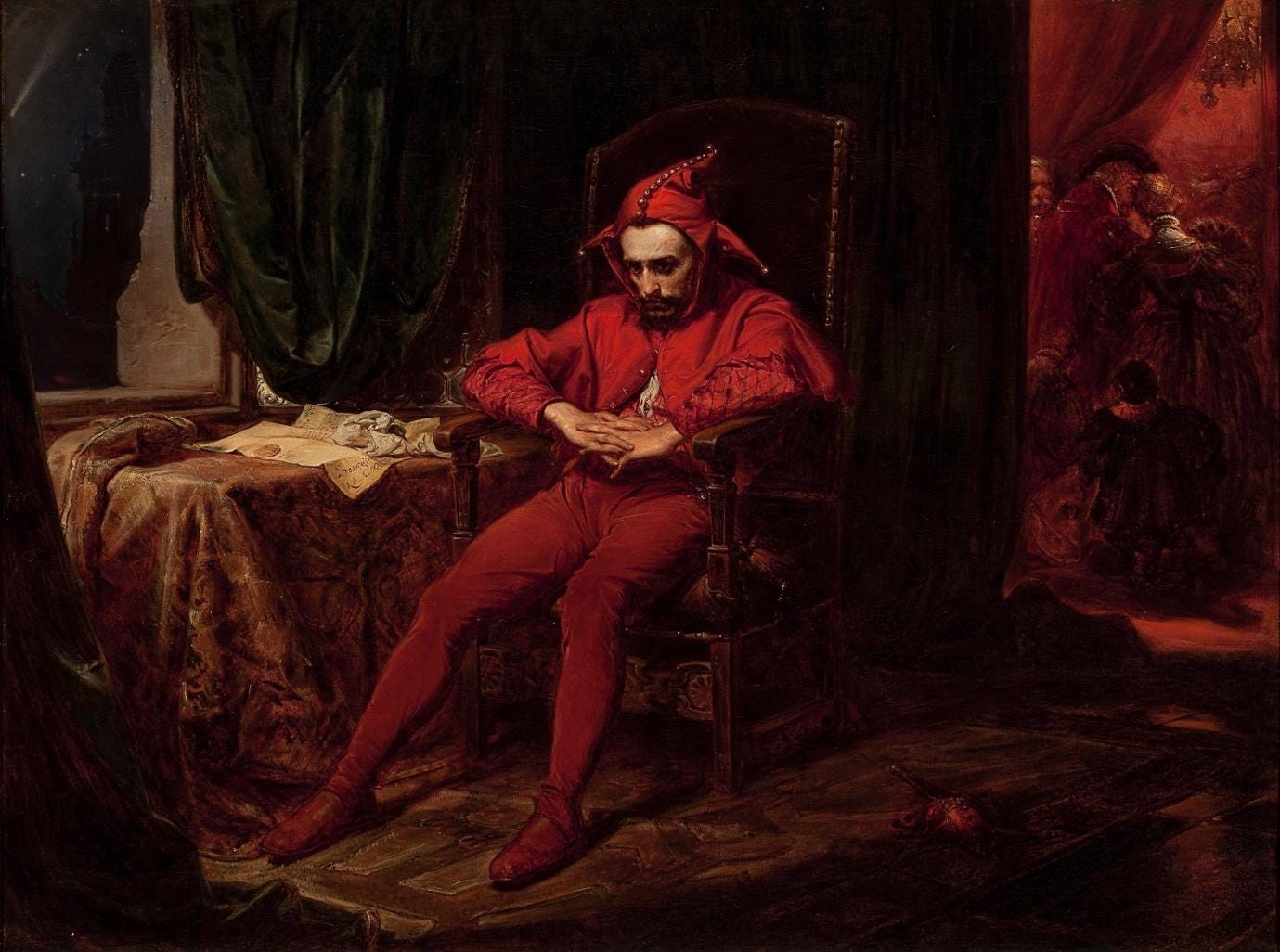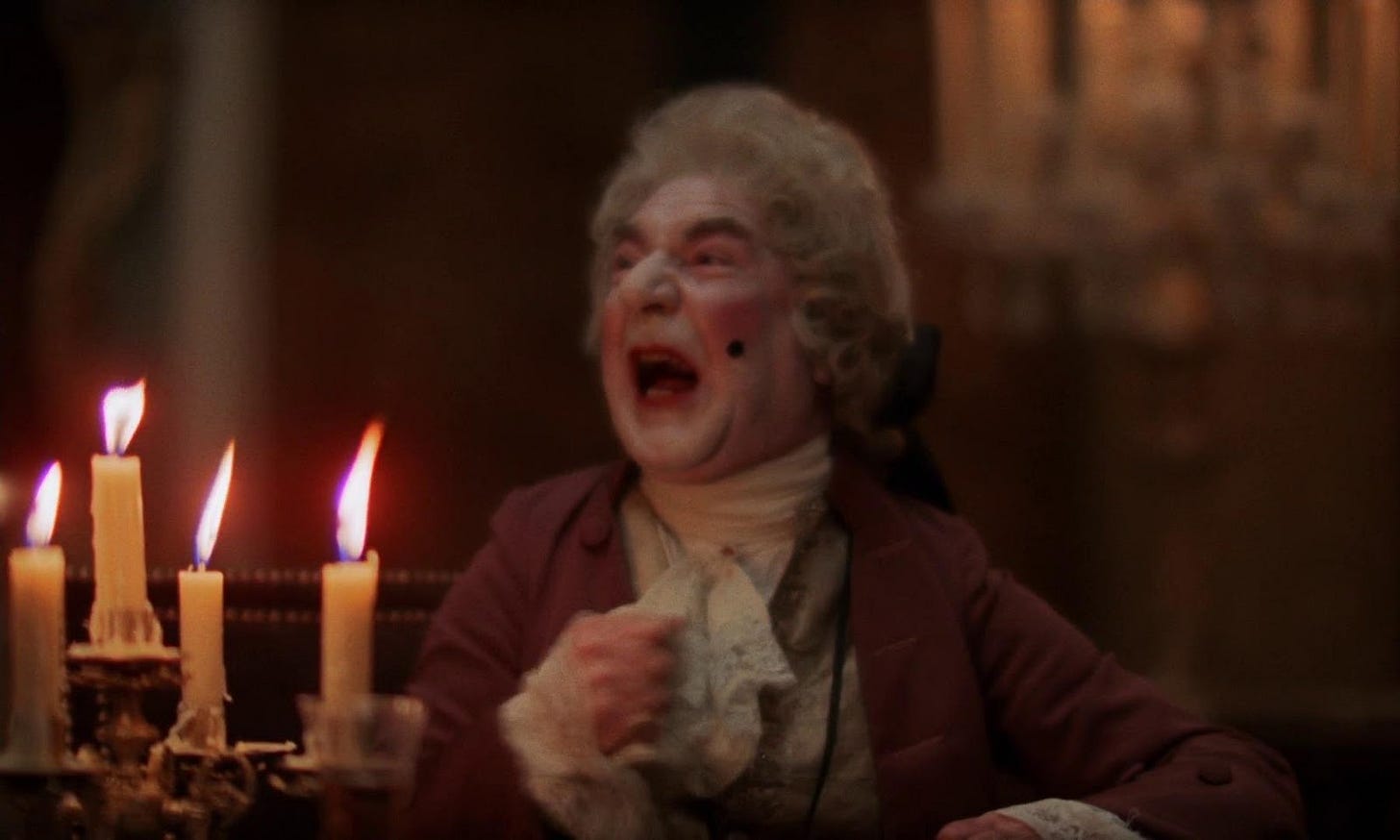McGill University: Where appealing for quiet is now a race crime.
Obsequious pandering at our universities: How bad is it really? Turns out it’s very, very bad.
In our contemporary Kubrickian Clockwork Orange landscape of social justice excesses, few institutions are more capable of repeatedly serving up ever more ridiculous and embarrassingly uber-woke car crashes than our leading universities.

Take for example, McGill University—the Cambridge to the University of Toronto’s Oxford—a seat of respected learning that is undeniably top-tier in Canada, and has of late endured any number of woes, from sprawling antisemitic student encampments to a medical school placed on probation by accreditors for, among other things, being remiss in its diversity efforts. Just recently, McGill’s top team shuttered its Medical Faculty’s bespoke diversity, equity and inclusion (DEI) office, terminated its racialised employees and placed a competent white woman at the helm in the wake of ongoing criticism for its failings.
According to the Aristotle Foundation’s recently published University Discrimination Index, McGill was still trailing nemesis UofT on discriminatory policies, suggesting a more moderate stance on DEI matters. But those findings obscure the political posturing of the more radicalised departments, particularly those claiming to advance teaching and education—a field termed ‘pedagogy’ by university boffins.
For context, pedagogy as a discipline is a late Twentieth Century concoction — a field that in all but name embodies a radical left-leaning political project, supercharged by the writings of Paolo Freire, the fêted Brazilian philosopher and author. Freire’s opus, The Pedagogy of the Oppressed, is widely accepted by its deranged advocates as the bible of modern teaching practice in the West. In what is broadly regarded as a reframing of Marxism, Freire calls for a repackaged brand of collectivism that at once distances itself from the top-down authoritarian movements of Stalin and Mao. Instead, it seeks to indoctrinate teachers as the new foot-soldiers in a classroom revolution that will deliver utopia through a range of non-traditional educational practices.
Little surprise, then, when recently, all hell broke loose at McGill’s Department of Education, as accusations flew from the outboxes of the top brass in response to anonymous and impromptu signage reportedly posted on campus meeting-room doors beseeching—unforgivably as it transpired—the university’s summer-session attendees to ‘keep the volume down.’

Under normal circumstances in polite Canadian society this would be quickly recognised as a predictable—if not vaguely annoying—societal trope, one that is common to any environment in the modern West where the private activities of self-involved, socially outgoing metropolitan types inevitably bump up against one another.
But, of course, this was no routine scenario punctuating the otherwise blissfully quiescent campus summer months. The room in question had been reserved for a gathering of Indigenous students and was to be hosted by a group of equally Indigenous experts who McGill claims, “travelled far and have taken time away from their families to engage in intensive learning with academic and community experts … at McGill.”
The upsetting notice, which was found posted on the doors to the event space, asked for them to remained closed and implored event participants to remain mindful of noise levels. But this unsanctioned signage prompted a seismic reaction from McGill’s Dean of Education, Vivek Venkatesh, who fired off a strident email on July 10 repudiating the sign’s unidentified perpetrators, and scolding them for their presumably Eurocentric, colonial ways that “make [the signs], at best, deeply insensitive and, at worst, exclusionary and unwelcoming.”
Ironically, the announcement — dripping with the hectoring tone and anachronistic child-minding rhetoric transplanted from a bygone era — is penned by a scholar of modern teaching practice. Yet it succeeds only in reviving nightmare tropes from British public schooling, the kind of tyranny that prompted gay intellectuals like Guy Burgess and Kim Philby to become Russian double agents during the Cold War. For Burgess, joining the other side was a way to avenge himself on the bullying elites of his youth. But in today’s culture war, McGill professors now stand accused of weaponizing Post-It notes that aim to rehabilitate white supremacy over indigenous people. Will academics be switching sides to become apologists for Christian church burnings? The jury is out.
Venkatesh’s self-flagellatory announcement circulated widely to Faculty across the university, landing as far afield as the inbox of a professor in clinical psychology, and went on to pay obeisance to Indigenous stakeholders, many of whom are doubtless even now quietly chuckling to themselves, enjoying and recognising the wholly performative spectacle of a privileged academic of South Asian heritage so pointedly wearing an ideological hairshirt in public.
It should be noted that South Asians in Canada on average make far more than Indigenous peoples according to Statistics Canada.
Professor Venkatesh went on to point out the potential harm caused by such unauthorised public notices posted by unknown individuals, which might as well be categorised as flagrant acts of racial violence. “Anonymity, especially in ways that target or alienate others, has no place here. Regardless of intent, such actions can cause serious harm.”
Of course, the ideological underpinning informing this burst of outrage from one of McGill’s top bureaucrats is that Western social values embodying social politeness — that entrenched common thread tying our nation together — is an intolerable affront to those academics seeking to dismantle the ever-present spectre of European colonial hegemony.
Accordingly, simply asking for a quiet space is not a mild-mannered entreaty, but rather a violent imposition of colonial oppression; an act that continues to subjugate First Nations people. By extrapolation, it seems reasonable to suppose Dean Venkatesh also despises anonymous ballots in our democracy and would insist the electorate — at least, those that are non-Indigenous — be cross-examined by ‘educated’ adjudicators before casting their vote.
The descent into farce is palpable. Venkatesh seems to have donned a periwig and set about a one-man comic Restoration revival, so absurd is his breathless outrage. “Let me be clear: such actions are unacceptable. They… undermine the safe, respectful, and supportive environment we are committed to creating for all learners—especially those who have historically been marginalized within educational institutions.” Because nothing says disrespect like a sign saying ‘Quiet please.’ By the same logic, Franciscan monks — a brotherhood that was profoundly influential in the emergence of fledgeling universities in the 13th century — intoning Silencio! over loudspeakers in the Basilica in Assisi should find themselves muted and reproached.
It's hard to credit the performative absurdity, the total and seemingly effortless speciousness of these tactics adopted by virtue signalling senior academics, a censorious elite who are so divorced from modern reality that their entire raison d’être revolves around brow beating normal Canadians into submission over utter trivialities.
Veering imperceptibly close to parody, Venkatesh concludes his missive by imploring anyone still reading, “Let us take this moment to reaffirm our responsibilities to one another and to the work of reconciliation, which is not symbolic but lived in our everyday actions.”
One of those everyday actions might rather be to behave like a normal, polite human being in our modern world, rather than, say, recalling the obstreperous cuckhold, Sir Charles Lyndon, stepping out of the frame of Stanley Kubrick’s 1975 masterpiece, Barry Lyndon. In that famous scene, Lyndon correctly guesses the Machiavellian intentions of the film’s protagonist, and his protestations are genuine and command pathos. In comparison, the histrionic antics of McGill’s top administrators have slipped into bathos and unintentional self-mockery.
For anyone still objecting to notions that today’s universities fall beyond the pale ideologically, this incident offers a welcome dose of smelling salts. Others will recognise this slapstick as the height of parody and nod with the kind of weary resignation that accompanies four successive liberal terms in Canadian government.
There’s ample reason to call for universities to reform, and to jettison their tired, pandering DEI religiosity. But whatever you do, don’t say it out loud. Any entreaties for common courtesy are unwelcome.



So kind of you.
Holy cow!!!! This was superbly written! Thank you.